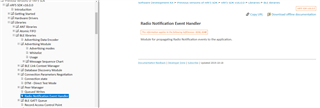hello Nordic
i am working with nrf52832, sdk 6.0, softdevice s132 v7.0
i read around the forum that i can advertise a beacon packet every 20 ms
but in the ble_app_beacon example the interval for the advertisement is written to be minimum 100ms ?? so where did that 20 ms go ?
however, since i don't know how to change the data of the message while advertising i put a timer handler that stops the advertise, update the data and start it again.
i put the timer to go every 50 ms and the advertisement interval every 50 ms i put a pin toggle every time i receive a ble from the address i am filtering..
1. the time is not fixed, maybe some messages are lost or maybe not sent, i don't know
2. the intervals are larger then 50 ms .. more to the 100 ms when they are sometimes fixed
can you advice on this matter ?
i need to be sending changeable data in a beacon at list 30 times in one second
best regards
Ziv

